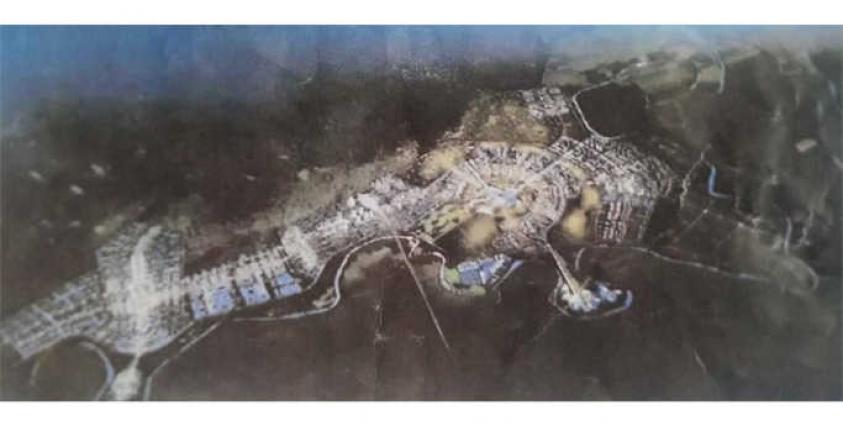U Ba Tin — Artist depiction of the proposed Shwe Kokko development – Who really benefits?
The most important trade route between Myanmar and Thailand is located in Myanmar’s Kayin State where the Friendship Bridge links Myanmar’s Myawaddy town to the Thai town of Mae Sot. Despite the existence of this already bustling centre of trade, work recently and quietly commenced on a vast development project at Shwe Kokko, a tiny fishing village, less than 15 kms north of Myawaddy.
At first-glance the development in Shwe Kokko would not seem particularly interesting as the village is in an isolated rural area. However, on closer inspection readers would be surprised to learn that a completely new city, similar in size to Hong Kong, is being privately constructed and funded by the Chinese government, with minimal publicity and regulatory scrutiny.
Despite being portrayed as a Myanmar project, it is in fact the result of the Chinese government’s expansionist vision, which explains how the Kyat 23.35 trillion (US$15 billion) required to make this project possible was secured. As is typical with Chinese infrastructure projects, construction will be undertaken by an arm of the Beijing bureaucracy, in this case a conglomerate called Yatai Group. Despite the size of the company, there is limited information publicly available about its corporate governance or development track record.
Irrespective, in mid-2018 the Myanmar investment Commission granted Yatai Group approval for a small development is Shwe Kokko, however that initial 25 acres limit has been vastly exceeded and currently sits at 50 acres, with the final size of the development expected to cover nearly 3,000 acres to accommodate an airport, casinos, universities, offices, accommodation and all the other requirements of a city of this size.
Who wins & who loses?
While developments in rural and impoverished areas are typically welcomed due to such investments raising living standards, in this case the development’s primary beneficiaries are clearly not the Myanmar people. Local families have already been moved off the land in the development zone with little if any compensation. Materials for the projects are being sourced from China or Thailand, and thousands of Chinese workers have been brought into Shwe Kokko instead of utilizing Myanmar’s skilled labour workforce.
The ever growing number of Chinese workers, and their accompanying families, is of concern to locals, as is the estimation that nearly half a million residents will eventually live in Shwe Kokko, with the vast majority of those likely to be Chinese. These fears have not been assuaged by the lack of transparency surrounding this development and Chinese security preventing locals and the media from accessing the development site to better understand what is occurring. No consideration appears to have been given to the negative impact that the Shwe Koko development will have upon the established town of Myawaddy.
Huge Chinese developments such as that occurring at Shwe Kokko are not unique to Myanmar, but rather form part of a regional trend where the Chines government is pushing its expansionist vision. This is being achieved by proposing, financing and then building huge China-centric developments in neighbouring countries under the auspices of enabling trade.
However, the sheer size of the developments and arrival of thousands of Chinese citizens has caused many to question whether such developments are purely investment oriented, or whether they are cause for concern regarding the host countries sovereignty. On the face of it, it would appear that with Shwe Kokko, billions of dollars of foreign funding and thousands of Chinese workers are active on Myanmar soil without proper scrutiny while Myanmar citizens are locked out of the opportunities and benefits that should rightfully flow from these development projects.
U Ba Tin is the pseudonym for a regional writer. The views expressed in this article do not necessarily reflect those of Mizzima Media.








